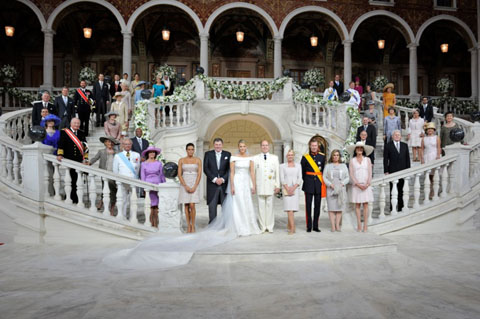 [Cross-posted] One of the topics raised by Summer Rayne Oakes, author of Style, Naturally and a scientist and strategist in her own right—not to mention Lucire’s editor-at-large—was why chat rooms fell out of favour this century.
[Cross-posted] One of the topics raised by Summer Rayne Oakes, author of Style, Naturally and a scientist and strategist in her own right—not to mention Lucire’s editor-at-large—was why chat rooms fell out of favour this century.
During the last week, Summer Rayne and I had plenty of good chats, but this is probably one that relates directly to some of the issues I discuss on this blog.
The obvious answer is all the odd people who used to venture into these chat rooms, often wanting to get on to a sexual topic. I’ve encountered my share, and it seems that women are targeted even more. These were always at non-sex spaces, and even they would attract those looking to get off on discussing these topics.
But that can’t be it. This is partly my memory giving chat rooms a bad name. The overwhelming majority of conversations I had on them were productive and only a handful had visitors whose minds were on sex.
Yet in the last 10 to 20 years we’ve also seen the rise and fall of the email and online discussion group. Spam may have had something to do with that. But the newsgroups also seem to be less well frequented: in fact, I found it very odd when someone referred me to a newsgroup earlier this month on, of all things, Karl Malden’s nose. A newsgroup? Do people still use those?
There have been the rise and fall of MySpace, and the rise and seemingly continued rise of Facebook and Twitter.
Anyone who has been on Twitter for a little while can see that many people out there have their own websites now. The blogging revolution that people such as Helen Baxter predicted has come to pass: people are expressing themselves, and everyone is vying for their share of the internet audience. Some do it by being sarky (some of the celebrity gossip sites come to mind), others by being deceptive (a few so-called news sites attacking people), and, hopefully, the majority are there just trying to get by with some honest reflection and communication.
But in this quest for self-expression, the victim seems to have been communicating in a common space. We bloggers still want to share, but we expect readers to come to our space to do it. The chat room, which worked on the idea of a central location that was common to one’s interest, has given way to everyone playing host to a variety of subjects, and netizens pop by to the one that suits their subject area. Ultimately, they are found on a search engine, not at something as neutral as Egroups.
In other words, we no longer go to the community centre, we play guests at people’s homes. Except this is done virtually. And the relationships, seemingly, are more shallow.
Unless it’s a blog that I have great affinity with, I’m unlikely to visit again. Last week, Ashes to Ashes finished its second series on BBC1. I frequented blogs that reviewed the finalé. I might leave a comment. But they are unlikely to be places I’d revisit, certainly not till the next series begins in 2010. By then I am likely to have forgotten who they were.
There have been some wonderful readers on this blog whom I have come to admire and respect. But there are also many whom I do not know beyond their single comment.
I’m wondering whether the blogosphere has given rise to the sort of deep connection that one can form personal or professional relationships on, because our contact is more fleeting. Certainly it cannot work alone: something must complement the blogosphere if two people are to form any sort of relationship. In that vein, the old discussion groups seem to be more self-contained.
When I look back at my dozen or so years managing discussion groups and blogging, many of the strongest bonds are still with people I met on discussion groups. Someone like Simon Young falls into that category. Others I know in person, before they even became bloggers, such as Johnnie Moore.
The blogs have opened the door to my meeting other people. I’m sure Cat Morley, whom I met on the blogosphere, and I, would get on famously if we met face to face. Jim Donovan falls into that category. But Jim and I meet almost monthly, and we’ve opened the door to that more extensive contact.
Maybe I’m not one of those “celebrity bloggers”, so blogging has not resulted in a rise in my work. It has helped a bit with my profile. But it is a surface medium, one that hasn’t supplanted the chat room or email group. It is a very wordy business card or a calling card.
Yet we humans still seek those deeper relationships. They are not to be found on Facebook groups, because at the end of the day, Facebook is about keeping in touch with those one already knows. It is a social network in the literal sense: people are there with brains switched off (I know I am), socializing. While I have met people through it, I am not convinced that it is a medium where one can espouse those deep thoughts in a group, the same way some of us used to on email groups. There are so many people there that it lacks the feel of a chat room or a discussion group, where there were regulars. Its one great benefit, as far as I can tell, has been the fact that the majority of the conversations have been clean and so far, no one has engaged me in a discussion about sex on a Facebook group about, say, freeing a jailed journalist.
So the answer to Summer Rayne’s question may be that we have ventured too far into becoming talkers and not listeners. The shift to the blogosphere has allowed us to come forth overwhelmingly, because we could, all of a sudden. For those of us not wishing to write posts as long as this (1,000 words and counting), Twitter has become that great substitute, where 140 characters are all that are available. Everyone wants their 15 minutes of fame, and since few of us wish to debase ourselves on reality television, the blogosphere and Twitter allow us to control the message.
I somehow think we will congregate again. I know some people who have set up Ning groups, to some success. A friend of mine, and a former Lucire beauty columnist, frequents one devoted to young mothers. We must get to a point where everyone who wants one has their own blogs or Twitter account, and we get sick of talking without any certainty over whether anyone is listening.
People are creatures who wish to communicate, and that implies a two-way dialogue. Blogs were meant to deliver just that, but I’m waiting for the next online revolution that restores that two-way street.
Cassius Eyewear gets plenty of attention
A Long Term Relationship with hair
Where have all the chat rooms gone?
Categories
culture / living / Lucire / media / publishing / society / trend / Web 2·0 / Zeitgeist
Filed by Jack Yan
culture / living / Lucire / media / publishing / society / trend / Web 2·0 / Zeitgeist
Filed by Jack Yan









I’ve often wondered about this and, ironically, the issue itself seems little discussed. Around ten years ago large public chat services such as MSN Chat were the main forms of communication and I don’t think a simple loss in popularity is the only explanation. As you say, this form of communication provides something which blogging, tweeting and using instant messenger services don’t and the medium still appeared to be hugely popular when the large sites such as MSN and Yahoo pulled the plug.
I think the answer probably has a lot more to do with economics than the preferences of users. Running large scale chat services was a real drain on resources – both in terms of server/bandwidth considerations and in terms of the monitoring of discussions to eliminate spam/illegal content. By shifting focus on to services like Windows Live Messenger companies were able to retain most of their audience at a fraction of the cost.
This is a shame because the old chat format was an exciting experiment in the art of meeting people and it’s one which blogging, IM services and the other alternatives haven’t adequately replaced. I can only hope that the tide turns once again and we can experience a revival of the chat services available a decade or so ago.
Stuart, whenever there are illogical decisions made—such as the cancellation of a popular service—I say, ‘Follow the money.’ I think you hit upon it, though I imagine today, the cost of hosting chat rooms will have fallen, and servers have got more powerful.
What’s old may well be new again. As people tire of the all-talk world, where everybody has a blog and no one is forming new friendships or collaborating, we might see a “revolutionary” new site and those of us old enough might just think, ‘Hang on, isn’t that a chat room?’
We are already seeing reports that Twitter has peaked, and people may well want a service that has a similar bent. The next logical evolution, I would say, is a Twitter grouped by interest …